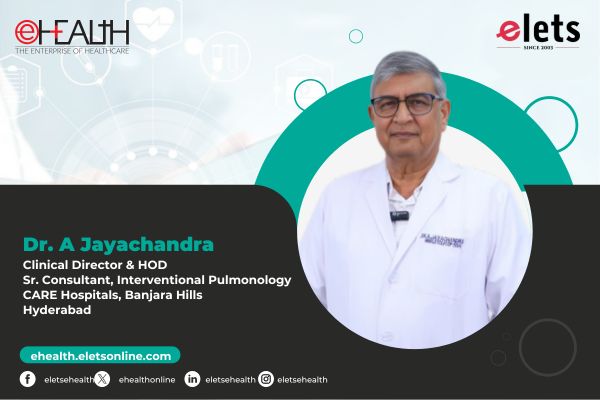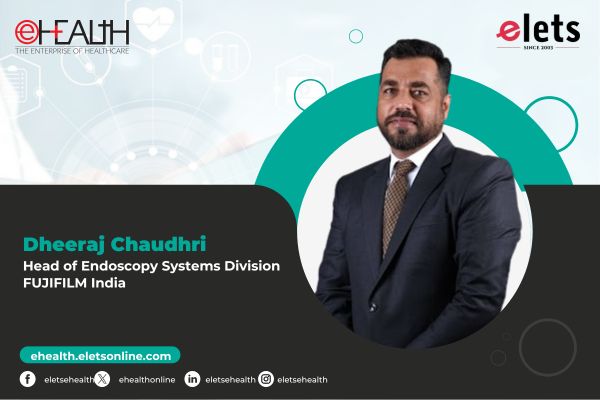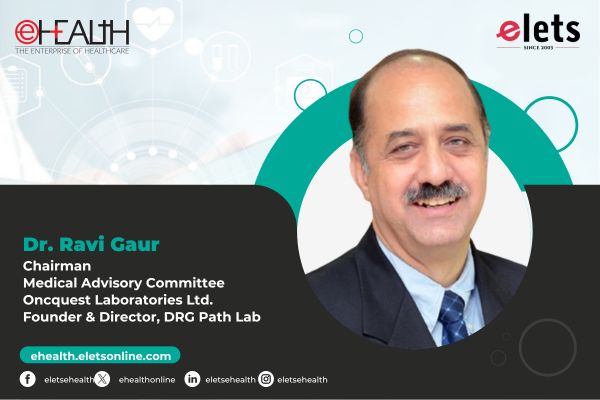
Over the years, the Indian health environment has been evolving, sometimes progressing, sometimes stumbling, towards a more connected, tech-savvy, prevention-first future. But amidst rising challenges, the journey in 2025 remains far from complete.
There is a growing burden of non-communicable diseases such as diabetes, hypertension, cardiac conditions, and mental illnesses. At the same time, we are still grappling with infectious diseases like TB and dengue—diseases we had hoped to have conquered by now. Currently, India is not facing a healthcare crisis but rather a crisis of coordination, vision, and political will.

Cardiac Health: Why the Stethoscope Alone Won’t Save Us
Heart problems are more prevalent than ever. Sedentary lifestyles, poor eating habits, and chronic stress have become everyday norms, particularly in urban areas. Cardiac care should not start in the ICU—it must begin in clinics, gyms, schools, and homes. Unless we integrate mental health services, promote work-life balance, and embed stress management into the foundations of cardiac well-being, we are merely firefighting.

Pre-Diabetes: A Ticking Rural Time Bomb
Diabetes is often viewed as an urban problem, yet it is quietly making inroads into rural India, often undiagnosed, misdiagnosed, or ignored. Even rural health workers are not immune to the rising threat. Data from the National Family Health Survey (NFHS) shows a significant increase in diabetes prevalence. A meta-analysis of 1.7 million adults found that diabetes in rural India rose from 2.4% in 1972 to 15.0% between 2015–2019. More recent numbers from the Centres for Disease Control and Prevention (CDC) report that 14.3% of the rural population is affected.

Mobile health vans, telemedicine platforms, and community clinics must become the backbone of rural chronic care. If not, India will be swept away by a tidal wave we failed to anticipate.

Obesity and Children: Who Will Protect the Next Generation?
From school canteens serving fizzy drinks to so-called ‘health bars’ packed with processed sugar, children’s health is under threat. India is estimated to have 83 million overweight or obese children, with a prevalence rate of 24%, according to the World Obesity Federation. If we do not act now, we are condemning our children to a life of chronic illness.
Stricter food marketing regulations targeting children, mandatory physical education in every school, and nutrition literacy treated on par with mathematics and science are essential steps forward.
Cancer: A Health Emergency in Disguise
Cancer is turning into a silent epidemic in India. With about two million registered patients, the country faces a severe shortage of oncologists, surgical oncologists, and radiotherapists—most of whom are concentrated in private hospitals. In 2022, India had approximately 2,000 medical oncologists, while the estimated need exceeded 5,000. This gap is projected to surpass 10,000 by 2030.
These numbers are alarming. We cannot afford to treat cancer care as a privilege. While the Indian Council of Medical Research’s (ICMR) cancer registry programs are a good start, they must be matched by real investment in oncology training, rural cancer units, and early screening initiatives.
Mental Health and Environment: The Invisible Epidemics
Our air is polluted, rivers are dying, and we are inhaling poison while labelling it progress. Yet environmental health remains largely absent from national health policy. Combine that with constant pressure, lack of work-life balance, and a growing disconnect, and we face a mental health crisis, exacerbated by isolation, social media, and economic uncertainty.
We are a generation that lived through the COVID-19 pandemic. While our physical immunity was tested, our mental resilience took a greater hit. What India needs is true cross-sectoral collaboration—something we’ve rarely done well.
Substandard Drugs: A Quiet Betrayal
It is deeply concerning that only around 20% of India’s pharmaceutical manufacturing plants are GMP-certified, despite our global standing as a pharma-exporting nation. To protect patients and restore trust in Indian pharmaceuticals, we urgently need stronger enforcement of drug quality regulations. If trust is lost, even the most effective drugs cannot save the system.
Looking Ahead: There Is Hope
And yet, hope remains.
Not because the system will correct itself, but because change is already underway. From AI-assisted diagnostics and heart-monitoring wearables to medicine-tracking apps, the future is here. It just needs to be accessible to all.
Initiatives like Jan Aushadhi Kendras aim to make quality medicines a right, not a privilege. But technology alone is not enough. We must retrain our healthcare workforce to align with modern tools and, above all, restore dignity to frontline workers who form the foundation of the system.
The problem is no longer just one of policy—it is a question of what kind of nation we aspire to be: one that allows preventable illness to destroy lives, or one that sees health as a collective responsibility.
India’s healthcare future will be shaped not just by innovation, but by compassion, justice, and the will to care.
Views expressed by: Bhagwat Dhingra, Managing Director, MediSage E-Learning Pvt. Ltd.
Be a part of Elets Collaborative Initiatives. Join Us for Upcoming Events and explore business opportunities. Like us on Facebook , connect with us on LinkedIn and follow us on Twitter , Instagram.
"Exciting news! Elets technomedia is now on WhatsApp Channels Subscribe today by clicking the link and stay updated with the latest insights!" Click here!
















